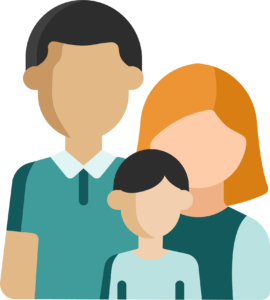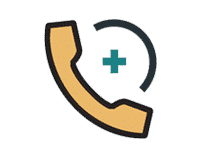Family Counseling for Addiction
Is Family Counseling for Addiction Necessary for My Recovery Process?
Many addiction clinics offer family therapy for the entire family. Unlike other substance abuse treatment programs like personal therapy for co-occurring disorders and a 12-step program, family substance abuse counseling is meant to be temporary. In family therapy for addiction, you will generally meet for 50 minutes to an hour for around 12 sessions.
During family therapy sessions, family events and personalities are directly addressed in the family program. In the end, family therapy does not fix all of the family’s interpersonal problems. It focuses on putting the family members in a better situation to problem solve amongst themselves in the future. Furthermore, improving communication skills amongst the families affected.
Does Family Dysfunction Encourage Substance Abuse?
In some cases, a person’s family involvement and history can encourage substance abuse. Parents unintentionally teach their children even when they are not aware the child is watching. This is the nurture aspect of nature vs nurture.
Nurture is not only a good thing that the child learns or is exposed to. Nurture encompasses all of the child’s experiences and outside influences such as family relationships, both good and bad. It also encompasses things the child was not exposed to, such as a healthy home environment.
Can a Parent’s Mental Illness Lead to a Child’s Future Drug Abuse?
A co-occurring disorder is when two or more mental disorders, one of which is an addiction disorder, occur in the same person. Co-occurring disorders, or dual diagnoses, can complicate addiction treatment for family therapists. Often, if a family does not know how to handle one or more family members’ special mental health issues, the family components can become dysfunctional. Dysfunction usually serves to make the family problems even bigger and can lead to a substance use disorder in any family member, not just the family member with the mental health condition(s).
The Family and Situational Depression
One of the risk factors for developing substance abuse is stress response syndrome, also known as adjustment disorder, or situational depression. Stress response syndrome usually occurs within 3 months of the stressful event and usually does not last any longer than six months. Some of the stressful events that might cause adjustment disorder are:
- Childbirth
- Being the victim of a crime
- Job loss
- Ending of a marriage or relationship
- Having or being in an accident
- Living through a disaster like a flood, fire, or hurricane
Many people downplay situational depression from having a baby. It is important to remember the health of the mother and not simply obsess over the wellness of the child. Postpartum depression is its own condition and it requires professional treatment whether or not there is an alcohol abuse addiction present.
What Are Some of the Indicators of Situational Depression?
Situational Disorder
Sometimes situational disorder can affect some people’s ability to function and interfere with activities such as:
- Sleep
- Work
- Studying
It is easy for someone with stress response syndrome to turn to substances as a way of coping with their pain. Here are a few indicators that someone might be experiencing situational depression:
- Headaches or stomach aches
- Feelings of hopelessness
- Anxiety
- Frequent crying
- Heart palpitations
- Problems sleeping
- Fatigue
- Changes in appetite
- New reckless behavior
- Increased substance use
Teens and children tend to have more behavioral problems like skipping school while adults tend to have more emotional mental health problems like anxiety. If someone has stress response syndrome it might be a product of their family conflict systems like a child or adolescent’s parent’s marriage failing or their parents abusing substances both/either.
Parent’s substance abuse can affect people throughout life, even beyond adulthood. That could fall under the category of Post Traumatic Stress Disorder (PTSD) in some cases. PTSD can also lead to an active addiction but it is different than adjustment disorder. A psychiatric specialist at an addiction rehabilitation clinic can diagnose you. Self-diagnosis is never recommended.
Is There More Than One Type of Family Counseling for Addiction?
There are several different types of family counseling for addiction treatment online Different family therapy models can be more useful than others depending on the family dynamics and the personalities of the different family members.
Types of Family Therapy
Here are some types of family therapy:
 Supportive Family Therapy:
Supportive Family Therapy:
In supportive family therapy, the members of the family are encouraged to have honest family communication and be open with each other with a family therapist moderating and giving advice. The therapist sometimes serves as a sort of referee, stopping family members from bullying or ignoring each other.
Cognitive-Behavioral Therapy (CBT):
In the CBT type of family therapy, the family therapist seeks to work with family members to help them modify their behavior and thought patterns to get rid of the family problems. Family members are often given homework to help them work on modifying their patterns while outside the therapy session and in family support groups at the treatment centers.
Use of Psychodynamic Ideas in Family Therapy:
Some therapists use psychodynamic ideas to look at the family member’s subconscious and use these underlying thoughts to uncover hidden problems in family behavior therapy sessions.
Systemic Family Therapy:
In this method, the therapist seeks to fully understand the family disease, system, dynamics, attitude, and ideas to uncover the problems the family group is facing as a whole. Then they start trying to help the family member find happiness with each other but maintain reasonable expectations of each other as human beings. By understanding your loved one’s addiction, family therapy helps to improve communication and fix the whole family dynamics.
How to Schedule Family Therapy
During family therapy, not all family members will be or will have to be present at all sessions. Sometimes the therapist might want to work on one with certain family members or work with different sections of the family together at a time like the children together or have a session where it is just the caretakers. That does not mean that the family will never meet together as a whole family.
What Is One of the Biggest Myths in Family Therapy?
In therapy, parents are not automatically pointed to as the cause of all of the children’s problems. Many people do inherit certain traits or they are raised in a way that encourages certain patterns, but the overall fact that people are responsible for their own choices is not forgotten. This, however, does not mean that all other family members bear no part in the path that leads the individual to substance abuse.
Can I Go to Any Therapist for Family Therapy?
It is important to find a therapist who specializes in your family’s particular needs. If your family therapist has never dealt with a family facing a substance abuse disorder before, they might not be the right therapist for you. Luckily, the therapists at addiction recovery centers are specially trained to help families who are facing addiction problems.
Are There Particular Therapies for Families With Teens Who Have Substance Use Disorder?
Some of the types of family therapy that are especially useful in clinical alcohol rehabilitation and useful for teens/adolescents are:
Family Behavioral Therapy: This is the most commonly recognized type of family therapy. In sessions, there are at least two family members always present to maximize therapeutic benefit. During therapy, patients are encouraged to modify problem behaviors. It might differ from adult therapy in some ways.
Multisystemic Therapy: In multisystemic therapy not only is the person with substance abuse and their family included, but so is the whole community and the community outlook taken into account instead of focusing exclusively on the family.
Multidimensional Family Therapy (MDFT): MDFT is most often used to help teens and adolescents in intensive outpatient programs. This helps the family address the teen’s behavior in the community setting. MDFT is very in-depth.
Brief Strategic Family Therapy (BSFT): This therapy works on problematic interactions in the family unit that trigger the person with an addiction disorder to abuse substances. Some of these problematic interactions can be linked back to abuse and other trauma. Sometimes triggers are not necessarily related to the family.
If someone experiences a traumatic event certain places or even smells can trigger the individual. Part of the problem might be how the family chooses to interact with the victim of trauma while they are triggered and maybe their reaction and/or attitude towards the original trauma and/or the victim’s attempts to cope.
Functional Family Therapy (FFT): This uses the family system approach but it focuses on family dysfunction as the main trigger for an adolescent’s substance abuse. The focus of this therapy is what the family can do to effectively interact with and support the victim of substance abuse so that they can have a sustained recovery.
Family therapy is a key part of any clinical recovery program. Sustaining a recovery is very difficult if the individual does not have a stable place to return to after completing their clinical recovery program.
When you are ready to begin your road to recovery, please contact us today.
Contact Us
Get Help for You or A Loved One





